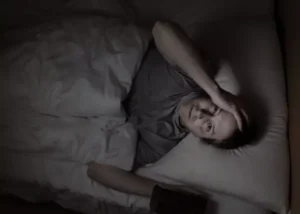
A key component of CBT for addiction is understanding how thoughts, emotions, and behaviors influence each other. CBT has some things in common with rational emotive behavioral therapy, which was developed on its basis. However, the latter mostly focuses on dealing with irrational thoughts and beliefs which lead to unpleasant consequences. Cognitive behavioral therapy offers a hands-on alternative to less engaging therapy methods. She has a Bachelor’s degree in Psychology and a Master’s degree in Social Work. With 17 years of relevant experience, she has helped several clients in their journey to recovery from addiction.

Does Cognitive Behavioral Therapy Help in Addiction Treatment?

This is determined based on your insurance plan itself, the state you live in, and what type of care you are seeking, such as outpatient mental health therapy versus an inpatient rehab stay.10 To find out for sure, contact your health insurance provider directly. Another potential, but largely unexplored advantage of technology-based, modularized CBT approaches is that they are compatible with evaluation and refinement via the MOST (Multiphase Optimization Strategy) approach of Collins and colleagues (Collins, Murphy, & Stretcher, 2007; Collins et al., 2007; Collins et al., 2014). Briefly, MOST approaches utilize factorial (and fractional factorial) designs to efficiently evaluate individual components of an intervention and their contribution to producing outcome. MOST designs have been successfully implemented in smoking research to refine multicomponent interventions for smoking (Piper et al., 2016; Schlam et al., 2016).
- Cognitive behavioral therapy (CBT) is an umbrella term for a set of scientifically proven psychological treatments that are effective for many mental health disorders.
- The therapists intervene at different stages in the thought-emotion-behavior cycle to help recovering addicts learn the skills to choose positive thoughts and behaviors.
- Working together, the therapist and individual try to identify the thoughts, feelings, and circumstances that led to and followed drinking or using.
- Role-playing offers a safe space for group therapy participants to confront their fears and negative thoughts.
Cognitive Behavioral Interventions for Alcohol and Drug Use Disorders: Through the Stage Model and Back Again
Several studies have used use wait-list controls, hence limiting the inferences that can be drawn regarding the efficacy of the intervention evaluated. Issues of privacy and confidentiality are particularly important to consider when dealing with individuals who are users of illicit drugs, particularly in the era of electronic medical records (Ramsey et al., 2016). Finally, while validated technology based interventions are generally less expensive than traditional clinician-delivered interventions, the lack of a reimbursement structure for these interventions constrains their availability to date. The effectiveness of cognitive behavioral therapy for substance abuse may depend on which substances a person uses.2 Research found that effectiveness may be higher for marijuana than for alcohol, cocaine, and stimulants, for example.2 However, more research is needed. To provide accurate empathy to patients, and to ascertain the optimal combination of validation for the status quo versus action toward change, it is important for therapists to assess the patient’s “stage of change.” Some patients are quite committed to giving up their addictive behaviors, and thus are at a high level of readiness for change. Others are more ambivalent, and may waver in their willingness to take part in treatment.
What Is Cognitive Behavioral Therapy (CBT)?
Mechanisms of behavior change (MOBC) are person-level processes that exert a causal influence on a specific behavior change outcome. For CBT for AOD, the MOBC of interest are the specific indicators that are, based in theory, expected to transmit the effects of the intervention on its targeted outcomes. These include cbt interventions for substance abuse cognitive shifts in self-efficacy related to various risk scenarios (eg, negative affective states, positive affective states), enactment of coping skills relevant to the CBT approach (eg, quantity or quality of skills), changes to environmental contingencies (eg, quantity or quality of available social supports).
How Does Cognitive Behavioral Therapy for Addiction Work?

Cognitive behavioral group therapy aims to create a collaborative environment that fosters emotional and mental well-being. Our list of top 10 CBT group activities is designed to help you manage stress, build a positive perspective, overcome triggers, maintain sobriety, and help you overcome addiction treatment challenges in an uplifting environment. Substance use disorder involves a dependence on drugs or alcohol that compromises an individual’s ability to function. It is characterized by prolonged or excessive misuse of substances and an inability to quit, even when continued use causes unwanted consequences in other areas of an individual’s life.
Other substance use disorders
Your health insurance provider may be able to cover all or part of the cost of rehab. American Addiction Centers (AAC) is committed to delivering original, truthful, accurate, unbiased, and medically current information. We strive to create content that is clear, concise, and easy to understand.
Benefits of CBT for Alcoholism and Addiction
Research has shown that CBT can be an effective treatment for substance use disorders, both on its own and in combination with other treatment strategies. CBT typically involves a number of distinct interventions—such as operant learning strategies, skills building, and motivational elements—that can either be used on their own or combined. Often, automatic negative thoughts are the underlying cause of addiction disorders.
Practicing Mindfulness Through Meditation
Serious or chronic substance use often requires medical detoxification in conjunction with treatment. Finding a treatment center that offers CBT may be helpful for your, or a loved one’s, recovery. This page will help you learn more about CBT, including how it works as a part of a comprehensive addiction treatment plan, and how to find a facility that offers CBT near you. The primary goals of CBT in the treatment of substance use are to improve motivation, learn new coping skills, change old habits, and learn to better manage painful feelings. Functional analysis is a process in CBT that involves looking at the causes and consequences of a behavior. Working together, the therapist and individual try to identify the thoughts, feelings, and circumstances that led to and followed drinking or using.
This work is intended to be a user-friendly overview of a large literature. As such, we provide a summary of systematic reviews and meta-analyses, but some landmark trials are also described. The population focus is adults with a diagnosed alcohol or other drug use disorder, as well as adults with substance use that may place them a risk for related consequences. To add clinical utility to this review, effect size data will be summarized using Cohen’s generic benchmarks of “small” (d ~ 0.20), “medium” (d ~ 0.50), and “large” (d ~ 0.80).18 In discussion, we provide final remarks on for whom, how, and where CBT may work best. As with other treatments for alcoholism and drug abuse, including pharmaceutical treatments, cognitive behavioral therapy works best when combined with other recovery efforts.
TREATMENT: Cognitive-Behavioral Therapy for Substance Use Disorders
- As with other treatments for alcoholism and drug abuse, including pharmaceutical treatments, cognitive behavioral therapy works best when combined with other recovery efforts.
- CBT skills group is a course that teaches mindfulness, your emotions, and the interconnection of thoughts, feelings, and behaviors.
- Both MET/CBT conditions included a CM component in which participants could earn up to $435 in gift cards if all urines were negative for cannabis.
- We provide an overview of Cognitive Behavioral Therapy (CBT) efficacy for adult alcohol or other drug use disorders (AOD) and consider some key variations in application as well as contextual (ie, moderators) or mechanistic (ie, mediators) factors related to intervention outcomes.
She enjoys collecting coffee mugs, crocheting, and attempting to write her memoir. When it comes to addiction, CBT can help you take steps to reframe your situation to avoid triggers. When you find a therapist skilled in CBT, you can take steps to apply the skills you learn to future situations. As you start healthier thoughts and behaviors, you start associating them with healthier emotions, and this can start to become second nature the more you do it. In CBT, the B, or your beliefs, is considered the most important, as it helps you change your beliefs to have better consequences, or outcomes.